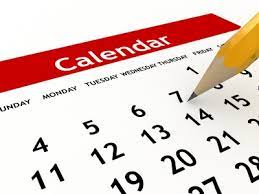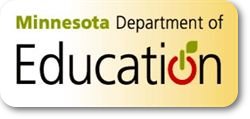District Assessment Information:
WAO District Assessment Coordinator:
Amber Schoepp
Testing Calendar: (subject to change)
(Click calendar image above to see calendar)
Questions and Answers about the MCA in Mathematics, Reading and Science
➡️ What are the MCAs?
The Minnesota Comprehensive Assessments (MCAs) are state tests in mathematics, reading and science that meet the requirements of the federal Elementary and Secondary Education Act (ESEA). They are given every year to measure student performance against the Minnesota Academic Standards that specify what students in a particular grade should know and be able to do.
2025-26 Participation Guide and Refusal Information:
➡️Why do we give these tests?
We
use the MCAs to find out how well schools have aligned curriculum to
and instructed students in the Minnesota Academic Standards in
mathematics, reading and science. The mathematics and reading
assessments are also used in federal school accountability measurements.
Schools
use the information to improve classroom teaching and learning.
Teachers and principals look for areas where students do well so they
can reinforce the ways they teach these skills. They also look for areas
that need improvement so they can increase instructional time or modify
their instruction.
➡️Who must take these tests?
The
State of Minnesota and ESEA requires that all students in public
schools participate in the statewide assessment program. Mathematics and
reading tests are given in grades 3–8 and high school (students in
grade 10 take the Reading MCA and students in grade 11 take the
Mathematics MCA). The Science MCA is given to students in grades 5 and 8
and in the high school grade when they take a life science or biology
course. With very few exceptions, all public school students in the
above grades take the MCAs.
Students
with an Individualized Education Program (IEP) or 504 plan may be
eligible for accommodations. Some students may be eligible to take the
MCA-Modified, an alternate assessment based on modified achievement
standards in mathematics and reading. Other students with significant
cognitive disabilities may be eligible to take the Minnesota Test of
Academic Skills (MTAS), an alternate assessment based on alternate
achievement standards in mathematics, reading and science. See the
Alternate Assessment Eligibility Requirements on the MDE website for
more information. (Go to School Support > Test Administration >
Minnesota Tests. See link above.)
👀 See Updated Parent/Guardian Refusal Form(click on this link or you can find the document on this page).
➡️How can students prepare for the tests?
The
“Test Preparation Suggestions for Parents and Teachers” handout is
available on the MDE website with tips on content preparation, general
test-taking strategies and using a calculator. View the Test Preparation
handout on the MDE website. (Go to Just for Parents > Testing
Information.)
Item
samplers help students become familiar with the format of the test and
provide examples of the types of questions that are on the test. You can
find item samplers for each grade and subject on the Minnesota
Assessments portal (www.mnstateassessments.org). View the item samplers
on the Minnesota Assessments portal (see links below).
➡️What does it take to pass the tests?
Students
do not pass or fail the reading and mathematics tests given in grades
3–8 or the science tests given in grades 5, 8, and high school. Each
student receives a score that falls in one of four achievement
levels—Does Not Meet the Standards, Partially Meets the Standards, Meets
the Standards and Exceeds the Standards.
The
grade 10 Reading MCA and the grade 11 Mathematics MCA may be used to
meet graduation assessment requirements. If students achieve Meets or
Exceeds the Standards, they have met their graduation assessment
requirement for that subject. View the Graduation Assessment
Requirements Parent Fact Sheet on the MDE website for further
information on graduation assessment requirements. (Go to Just for
Parents > Testing Information.)
➡️How are tests administered?
All
grades of the Science MCA are administered online only. All grades of
the Reading and Mathematics MCA are administered online or on paper, as
determined by each school.
The
Mathematics MCAs in grades 3–8 are online, adaptive tests, which means
that every time a student answers a question, his or her response helps
determine the next question the student will answer.
➡️What skills are assessed by the MCA?
The
MCAs measure student performance on the Minnesota Academic Standards.
View the Minnesota Academic Standards on the MDE website. (Go to
Educator Excellence > Standards, Curriculum and Instruction > K-12
Academic Standards.)
- The Reading MCA is aligned to the 2010 academic standards.
- The Mathematics MCA is aligned to the 2007 academic standards.
- The Science MCA is aligned to the 2009 academic standards.
➡️How can I see the MCA results for my child, school and district?
Your
school district will receive an individual student report for each
child who takes the MCA and will provide this information to parents and
guardians. This report shows your child’s overall score in each
subject, as well as scores for specific skill areas within each subject.
It also includes information about achievement level, comparisons to
various groups and comparisons to the student’s performance in past
years, when applicable.
School
and district results are available in the Data for Parents and
Educators section of the Data Center on the MDE website. Go to the Data
for Parents and Educators section of the MDE website. (Go to Data Center
> Data for Parents and Educators.)
Test Preparation Suggestions for Parents and Teachers:
The following suggestions for parents and teachers will help students get ready for a statewide assessment:
➡️General Preparation
- Students should take courses that address the Minnesota Academic
Standards. Most schools also make appropriate educational opportunities
available to students who are at risk for not succeeding on these tests.
- Share your enthusiasm and interest in reading, mathematics, and science with your children.
- Make sure students have had the opportunity to be become familiar with
the format of the test (see links below for item samplers).
- Encourage students to answer all test questions.
- Have students get a good night’s sleep and eat a nutritious breakfast before taking a test.
- Provide students with a study area.
- Encourage students to practice good study habits. Students should set aside time every day for homework.
➡️Reading Tests
- Read to students and encourage them to read to you.
- Have students try crossword puzzles and news quizzes in your local newspaper.
- Encourage students to read the daily newspaper and general interest magazines.
- Discuss the events and stories you read about in the newspaper.
➡️Mathematics Tests
- Encourage students to use mathematics every day. They can practice by
creating a grocery budget, explaining charts and graphs from newspaper
and magazine articles, dividing food portions, using rulers to measure
objects, measuring a recipe or adding prices on a shopping trip.
- Play games that involve numbers or computation.
- Encourage students to connect what they are learning in mathematics class to their
- hobbies, other classes and everyday life.
➡️Science Tests
- Use science articles from news publications to show that science is an ongoing, active process.
- Have students use inquiry skills by participating in science competitions, fairs and other activities.
- Explore science outside the classroom – nature centers, zoos and science museums.
➡️Using a Calculator
Talk to your child’s classroom teacher to find out how calculators are
typically used in the classroom. Students can’t share calculators with
other students during the Minnesota assessments or use any calculator
manuals. You can get more information on using a calculator for testing
from your school.

